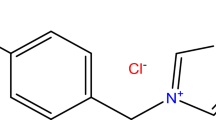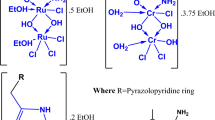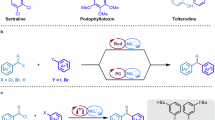Abstract
WHEN metals, for example, mild steel, corrode in aqueous solution it is commonly accepted that certain electrolytes, notably chlorides, sulphates, etc., are corrosive, whereas other electrolytes, such as chromates, silicates, benzoates, are inhibitive. In this communication the claim is made that electrolytes cannot thus be rigidly classified, and that (with the exception of certain reducing salts such as formates) ‘corrosive’ or ‘inhibitive’ properties are a function of the concentration of the solution. All electrolytes are corrosive in solutions of sufficiently great dilution, and in conditions of high aeration corrosion-rates and corroding potentials obey a common relationship, as will be described here. On the other hand, at high concentrations the normally aggressive nitrates become inhibitive, while chlorides and possibly even sulphates show a tendency towards inhibition.
This is a preview of subscription content, access via your institution
Access options
Subscribe to this journal
Receive 51 print issues and online access
$199.00 per year
only $3.90 per issue
Buy this article
- Purchase on SpringerLink
- Instant access to full article PDF
Prices may be subject to local taxes which are calculated during checkout
Similar content being viewed by others
Author information
Authors and Affiliations
Rights and permissions
About this article
Cite this article
BRASHER, D. Role of the Anion in relation to Metallic Corrosion and Inhibition. Nature 193, 868–869 (1962). https://doi.org/10.1038/193868a0
Issue date:
DOI: https://doi.org/10.1038/193868a0
This article is cited by
-
Electrochemical performance of Mg–9Al–1Zn alloy in aqueous medium
Journal of Solid State Electrochemistry (2011)
-
Electrochemical behavior of AZ91D magnesium alloy in phosphate medium: Part II. Induced passivation
Journal of Applied Electrochemistry (2009)
-
Formation and dissolution of anodic oxide films on zirconium in NaOH: Kinetic studies
Journal of Applied Electrochemistry (1989)
-
Corrosion problems in reinforced concrete: why accelerators of cement hydration usually promote corrosion of steel
Journal of Materials Science (1987)
-
Tungstate induced corrosion of some aluminium alloys in acidic chloride solution ? An approach for controlling it with morpholine
Journal of Applied Electrochemistry (1983)



